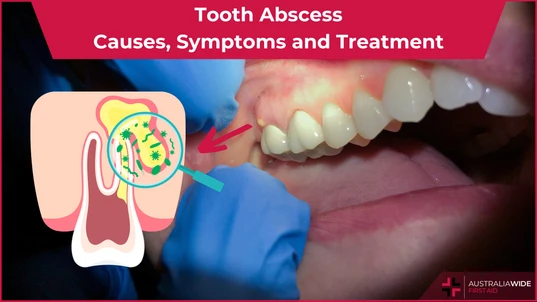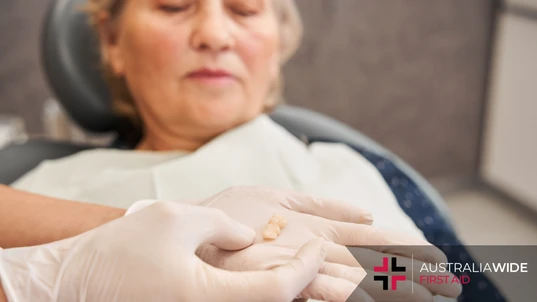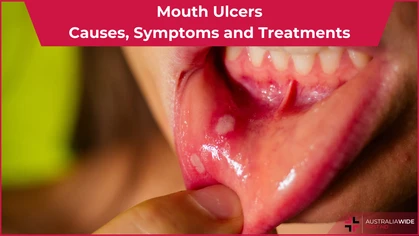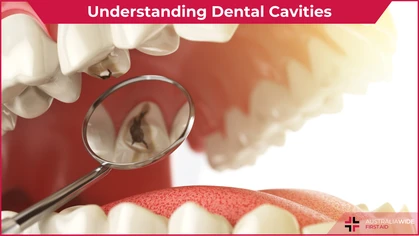Tooth Abscess - Causes, Symptoms and Treatment

General Health-Related
 Tooth abscesses are a painful and potentially severe condition that wreak havoc on your oral health and overall well-being.
Tooth abscesses are characterized by a painful build-up of pus near the root of a tooth. It can stem from various causes and demands immediate attention.
Whether you've experienced the discomfort of a tooth abscess or wish to fortify your knowledge of dental wellness, this comprehensive guide will shed light on the origin and management of tooth abscess.
Tooth abscesses are a painful and potentially severe condition that wreak havoc on your oral health and overall well-being.
Tooth abscesses are characterized by a painful build-up of pus near the root of a tooth. It can stem from various causes and demands immediate attention.
Whether you've experienced the discomfort of a tooth abscess or wish to fortify your knowledge of dental wellness, this comprehensive guide will shed light on the origin and management of tooth abscess.
What Causes Tooth Abscesses?
Tooth abscesses are typically the result of untreated dental infections, where bacteria multiply and create a pocket of pus near the root of a tooth. There are several common causes of tooth abscesses:- Dental Caries (Tooth Decay): One of the primary culprits behind tooth abscesses is untreated dental caries, also known as cavities. When a cavity goes unaddressed in its initial stages, it allows bacteria to infiltrate the tooth's enamel and reach the inner pulp, ultimately causing infection.
- Gum Disease (Periodontitis): Advanced gum disease, particularly periodontitis, can contribute to tooth abscesses. This type of infection originates in the gum tissue and can extend to affect the tooth's root.
- Dental Trauma: Teeth that have experienced trauma, such as fractures, chips, or cracks, become more vulnerable to infection, potentially leading to the development of an abscess.
- Complications from Dental Procedures: Although rare, dental procedures like root canals or crown placements can sometimes lead to infections if the treatment is not executed correctly or if complications arise post-treatment.
- Malocclusion: Misalignment of the teeth, also known as malocclusion, can create areas where food particles and bacteria get trapped, increasing the risk of abscess formation if not managed properly.
- Impacted Teeth: Wisdom teeth, which often erupt improperly, can become impacted, causing pain and infection that may lead to the formation of an abscess.
What are the Symptoms of Tooth Abscesses?
- Severe Toothache: One of the most unmistakable indications of a tooth abscess is the presence of a persistent and excruciating toothache. The pain is often described as throbbing, sharp, or constant and may radiate to the ear, jaw, or neck.
- Swelling: Noticeable swelling in the face or cheek near the affected tooth which is often tender to the touch.
- Sensitivity to Temperature: Heightened sensitivity to temperature, especially hot or cold foods and beverages, is a hallmark sign of a tooth abscess.
- Foul Taste or Odour: In some cases, the abscess may rupture, releasing accumulated pus into the mouth, resulting in a foul taste and bad breath.
- Fever: In severe cases, the infection may lead to an elevated body temperature and fever. If you have a fever along with other symptoms, it is crucial to seek immediate dental care.
- General Discomfort: Abscesses can cause a general feeling of unwellness, often manifesting as fatigue, irritability, and an overall sense of being run down.

What is the Treatment for Tooth Abscesses?
Drainage: The primary objective of treatment is to drain the abscess to alleviate pressure and pain. To achieve this, a dentist or oral surgeon will create a small incision into the abscess, allowing the accumulated pus to drain. This procedure provides immediate relief. Antibiotics: In cases where the infection has spread or if there is a risk of systemic infection, healthcare providers may prescribe antibiotics to control and eliminate the infection. Root Canal Treatment: When the affected tooth can be saved, a root canal procedure is often performed. This involves removing the infected pulp inside the tooth, cleaning and disinfecting the root canals, and sealing the tooth to prevent further infection. A crown may be placed on the tooth to restore its strength and function. Tooth Extraction: In situations where the tooth is severely damaged, cannot be saved, or the infection is unresponsive to other treatments, extraction may be necessary. Tooth extraction is typically considered a last resort when other treatment options are not viable. Pain Management: Over-the-counter or prescription pain relievers may be recommended to manage the pain associated with the abscess. Oral Hygiene: Improving oral hygiene practices is crucial to prevent future abscesses. Regular dental check-ups and cleanings play a pivotal role in detecting and addressing dental issues at an early stage.
What are the Complications of Untreated Tooth Abscesses?
Tooth abscesses, if left untreated, can lead to a range of complications that extend beyond the confines of the oral cavity.- Infection Spread: The infection can extend from the tooth and its adjacent tissues, reaching the jawbone, nearby teeth, and even the soft tissues of the face and neck. This can result in a more extensive and severe infection.
- Ludwig's Angina: In severe cases, an untreated tooth abscess can lead to Ludwig's angina, a potentially life-threatening condition. Ludwig's angina causes swelling of the floor of the mouth, which can obstruct the airway and make breathing difficult. Immediate medical intervention is necessary.
- Systemic Infection: If the infection enters the bloodstream, it can lead to systemic infection, a condition known as sepsis. Sepsis is life-threatening and can affect multiple organs and systems in the body, demanding immediate medical attention.
Conclusion
It is crucial to emphasize that the repercussions of untreated tooth abscesses go beyond oral health. Early intervention and proper dental care are vital to prevent these complications and ensure your health and safety. If you suspect a tooth abscess or experience dental pain or swelling, seeking immediate dental care is essential to address the issue and prevent these potentially life-threatening complications.
Originally published at
https://www.australiawidefirstaid.com.au/resources/tooth-abscess
as part of the Australia Wide First Aid Articles Library









